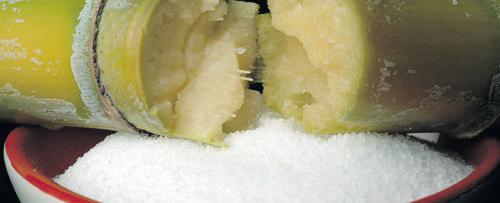
2 minute read
Complete sugarcane genome sequence opens up new era in breeding
The frst comprehensive reference genome for ‘R570’, a widely cultivated modern sugarcane hybrid, has been completed in a landmark advancement for agricultural biotechnology.
Sugarcane contributes $2.2 billion to the Australian economy and accounts for 80 per cent of global sugar supply. The mapping of its genetic blueprint opens opportunities for new tools to enhance breeding programs around the world for this valuable bioenergy and food crop.
It is one of the last major crops to be fully sequenced, due to the fact its genome is almost three times the size of humans’ and far more complex, with more than 100 chromosomes.
The milestone marks a new era in breeding for the crop and was driven by an international research consortium, which included Australia’s national science agency CSIRO, The University of Queensland (UQ), and the Sugar Research

Australia.
Principal Investigator and CSIRO Research Scientist Dr Karen Aitken said the breakthrough addresses the critical challenge of stagnating sugar yields by tapping into the previously inaccessible genetic information in the sugarcane genome.
“This is a major step forward for sugarcane research and will improve our understanding of complex traits like yield and adaption to diverse environmental conditions as well as disease resistance,” Dr Aitken said.
“This is the frst high quality sugarcane variety genome to be completed. It represents a signifcant scientifc achievement from 10 years of collaborative effort from scientists across the world.”
Co-author and UQ Professor of Innovation in Agriculture Robert Henry from the ARC Research Hub for Engineering Plants to Replace Fossil Carbon aims to develop renewable carbon products from plant biomass for use as cost- effective and sustainable aviation fuel.
“I’m certainly hoping to make great use of this genome to produce sugarcane that’s a better raw material to replace fossil carbon,” Professor Henry said.
“We need to do some major improvement in sugarcane for that use, because traditionally sugarcane has been bred just for sugar and now with the move to net zero, there is great interest in sugarcane as one of the most productive crops in the world to be that source of renewable










